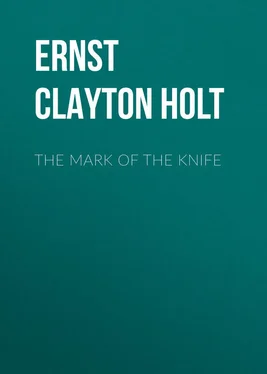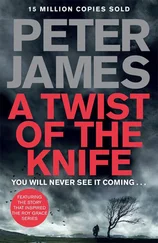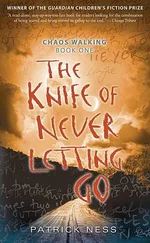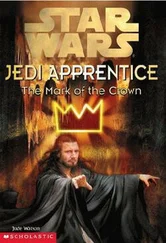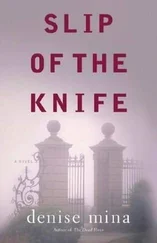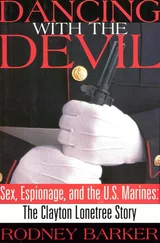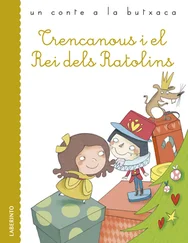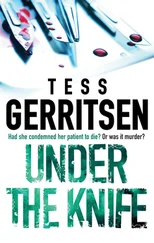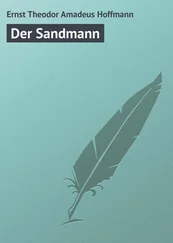Clayton Ernst - The Mark of the Knife
Здесь есть возможность читать онлайн «Clayton Ernst - The Mark of the Knife» — ознакомительный отрывок электронной книги совершенно бесплатно, а после прочтения отрывка купить полную версию. В некоторых случаях можно слушать аудио, скачать через торрент в формате fb2 и присутствует краткое содержание. Жанр: foreign_antique, foreign_prose, на английском языке. Описание произведения, (предисловие) а так же отзывы посетителей доступны на портале библиотеки ЛибКат.
- Название:The Mark of the Knife
- Автор:
- Жанр:
- Год:неизвестен
- ISBN:нет данных
- Рейтинг книги:3 / 5. Голосов: 1
-
Избранное:Добавить в избранное
- Отзывы:
-
Ваша оценка:
- 60
- 1
- 2
- 3
- 4
- 5
The Mark of the Knife: краткое содержание, описание и аннотация
Предлагаем к чтению аннотацию, описание, краткое содержание или предисловие (зависит от того, что написал сам автор книги «The Mark of the Knife»). Если вы не нашли необходимую информацию о книге — напишите в комментариях, мы постараемся отыскать её.
The Mark of the Knife — читать онлайн ознакомительный отрывок
Ниже представлен текст книги, разбитый по страницам. Система сохранения места последней прочитанной страницы, позволяет с удобством читать онлайн бесплатно книгу «The Mark of the Knife», без необходимости каждый раз заново искать на чём Вы остановились. Поставьте закладку, и сможете в любой момент перейти на страницу, на которой закончили чтение.
Интервал:
Закладка:
Clayton H. Ernst
The Mark of the Knife
CHAPTER I
THE NEWCOMER
Ridgley School, with its white buildings set comfortably among the maples and the oaks that crown the flat top of the hill a mile to the west of the village of Hamilton, attracts and holds the attention of all eyes that fall upon it. Partly perhaps because the dormitories and the recreation halls fit into the landscape and do not jut boldly and crudely above the trees – as so many buildings on hilltops do – there is an air of hominess and informality about the place which new visitors generally notice and mention to Doctor Wells, its head.
But it is one thing to ride up to Ridgley School in an automobile from the Hamilton Station with half a dozen other new Ridgleyites, some of whom have already become your friends, and to get your first view of the campus while cheerful voices are sounding in your ears, and quite another thing to walk up the long winding road from the village alone and to wonder as you come nearer and nearer to those neat white buildings whether you will succeed in making any friends at all among the fellows who have come up in the automobiles. Under those conditions Ridgley School might seem cold and austere and full of unpleasant possibilities.
That in fact was the situation of the newcomer who was walking swiftly toward the white buildings one morning late in September. He was entering upon an adventure that filled him with mingled excitement and gloom – excitement because of the mystery of the new life opening before him, gloom because of the necessity of giving up so much that had made him happy in the past. He went directly to the office of the Head in the building nearest the road and announced himself to Doctor Wells:
"I am Findley Holbrook."
Doctor Wells, whose face looked young in spite of the gray hair at his temples, got up from his chair and shook hands gravely. "I'm glad to see you, Findley," he said; "I hope you're going to like the school and that the school will like you. We've assigned you to Gannett Hall; I'll have one of the masters take you over and introduce you to the boys who've already come. We don't do much to-day except get settled. Did you bring your things?"
"My father is going to bring them up this noon," Findley replied. "I thought I'd better come early to start in with the other fellows."
Doctor Wells put him in charge of Mr. Stevens, who took him over to Gannett Hall, a three-story building with its ivy-covered front to the campus and its back to the tennis courts. A dozen boys were standing on the steps; they had been talking and laughing, but as the newcomer approached them with the master, their voices died away and they paused in their conversations. A black-haired boy, tall and heavily built, immediately called out:
"Hello, Teeny-bits!"
The new boy recognized the one who had hailed him as Tracey Campbell, who had been in the class above him in the public school at Greensboro. "Teeny-bits" was the name by which Findley Holbrook had been known ever since he could remember and to hear himself thus addressed brought to him a momentarily pleasant feeling, even though Tracey Campbell had never been a special friend of his. When Findley was younger he had been so small that some one had called him "Teeny-bits" and the name had stuck. At the public school in Greensboro, in the village of Hamilton, in his home, every one called him Teeny-bits, and though the name did not apply to him now as appropriately as it had applied when he was four or five years younger, it still fitted him so well that no one questioned it.
Mr. Stevens smiled as he heard it from Tracey Campbell's lips and glanced at his young companion. A compact, slim body somewhat under the average height for seventeen, square shoulders, a very youthful mouth, eyes that seemed older than the rest of him and light brown, almost tow-colored hair, were the characteristics of Teeny-bits Holbrook that Mr. Stevens, the English master, saw. He said to himself that Teeny-bits was an apt nickname.
There were other characteristics that Mr. Stevens did not see; one of them revealed itself half an hour after the master had introduced Teeny-bits to the members of the school who occupied the third-floor rooms in Gannett Hall. The newcomer found himself possessed of a small and plain, but comfortable room, in which a bed, a chest of drawers, a table and two chairs were the chief articles of furniture. It looked out on the tennis courts and commanded a view of Hamilton village with its twin church spires sticking up through the trees like white spar-buoys out of a green sea. It made Teeny-bits a little homesick to look down there. His thoughts were quickly turned in other directions, however. Several of the boys came into his room, led by a tall, over-grown fellow who had been standing on the steps of the hall when Teeny-bits had entered. He came in at the head of the others, grinning confidently as if he were looking forward to something that would provide amusement.
"Friends," he said in the stagey sort of voice that a person might use in talking to an audience, "meet Teeny-bits – that's his name."
The boys behind the leader smiled in a way that suggested something else about to happen.
"Let me introduce myself," said the tall boy. "I'm Bassett, the Western Whirlwind, manager of Terrible Turner, the fighting bear-cat."
All of the boys laughed or snickered, and Teeny-bits smiled expectantly.
"Here is Terrible Turner himself," said Bassett, laying his hand on the shoulder of a pug-nosed lad whose freckled face wore a queer look of combined insolence and friendliness. "For the honor of the school he will wrestle you to test your mettle – he's a wrestler from way-back. Do you accept the challenge?"
Teeny-bits looked at Terrible Turner and then at Bassett, the Whirlwind.
"No," he said, "I don't want to wrestle in these clothes."
"Take off your coat, then; we consider it an insult to the whole school if you don't accept the challenge. Are you afraid of Terrible Turner? He's no bigger than you are."
Teeny-bits saw that the freckle-faced boy was in fact no larger than he, but he did not seem any the more inclined to accept the call to combat.
After waiting a moment, Bassett said in a taunting voice: "Friends, let me introduce you to Teeny-bits, the quitter."
The words had an effect that the Western Whirlwind scarcely expected. Teeny-bits solemnly pulled off his coat, laid it on the bed, and replied to the challenge.
"I won't wrestle with Turner," he said. "He's younger than I am. I'll wrestle with you."
The action that took place during the next few minutes was not quickly forgotten by the members of Ridgley School who were fortunate enough to witness it. In their eyes, for the time being at least, it surpassed the battle of the Marne.
Bassett made a scornful reply to Teeny-bits' challenge and let escape the remark that he wasn't a "baby-killer" and wouldn't wrestle any "bantams."
The words were still in his mouth when Teeny-bits launched himself upon him. There was a brief collision and with a mighty thump Bassett, the Whirlwind, hit the floor flat on his back.
A mighty howl went up from the onlookers; it carried to the farthest corners of Gannett Hall, – and there was such a note of pure enjoyment and hilarious surprise in it that every son of Ridgley upon whose ears it fell wasted no time in abandoning whatever was at hand and dashing madly to the scene of combat. As Bassett struggled to his feet all the roomers in Gannett Hall began to converge on Teeny-bits' room, and by the time the Western Whirlwind had thrown off his coat and laid hold on his opponent again, they were crowding in at the door and craning their necks to get a view of the fracas.
Bassett's face was the color of a ripe tomato; he considered that he had been caught off his guard, and the hilarious shout of his erstwhile admiring audience caused chagrin, disgust and rage to sweep over him in swift succession. He was mad clear through, and he meant to teach this impudent young Teeny-bits a lesson. He was twenty-five pounds heavier and half a head taller than the newcomer, and he had no other thought in his mind than that he could quickly regain his prestige and wipe out his disgrace, – and he meant to do it in no gentle manner. Teeny-bits should hit the floor and hit it hard, and if the fall should shake the whole building he would not care.
Читать дальшеИнтервал:
Закладка:
Похожие книги на «The Mark of the Knife»
Представляем Вашему вниманию похожие книги на «The Mark of the Knife» списком для выбора. Мы отобрали схожую по названию и смыслу литературу в надежде предоставить читателям больше вариантов отыскать новые, интересные, ещё непрочитанные произведения.
Обсуждение, отзывы о книге «The Mark of the Knife» и просто собственные мнения читателей. Оставьте ваши комментарии, напишите, что Вы думаете о произведении, его смысле или главных героях. Укажите что конкретно понравилось, а что нет, и почему Вы так считаете.
